How much gold does the UK own compared to other countries?
Who's stockpiling gold?
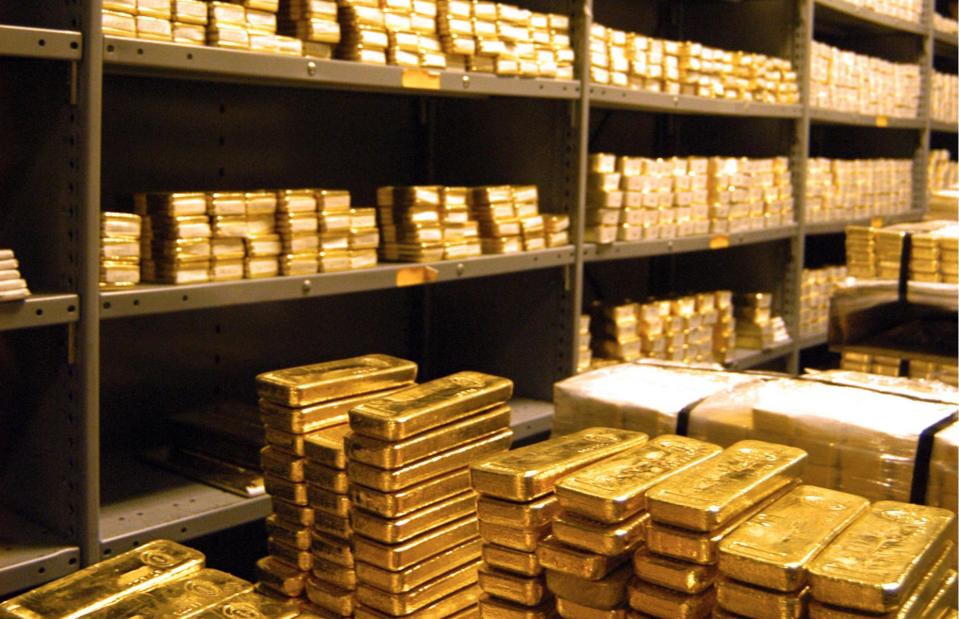
futurewalk/Shutterstock
Gold has long been viewed as the ultimate financial asset, and never more so than during times of uncertainty and financial crisis. While we no longer use the "gold standard" to determine the value of currencies, the precious metal is still incredibly useful. It's held by many central banks due to its immunity to political changes and economic shocks while being a "liquid asset", which means it can be converted to cash if needed.
But which countries have the most stashed away? Using the latest data from GoldHub, read on to see the 30 nations that own the most gold as of the fourth quarter of 2023. All dollar values in US dollars.
30. Brazil: 129.65 tonnes
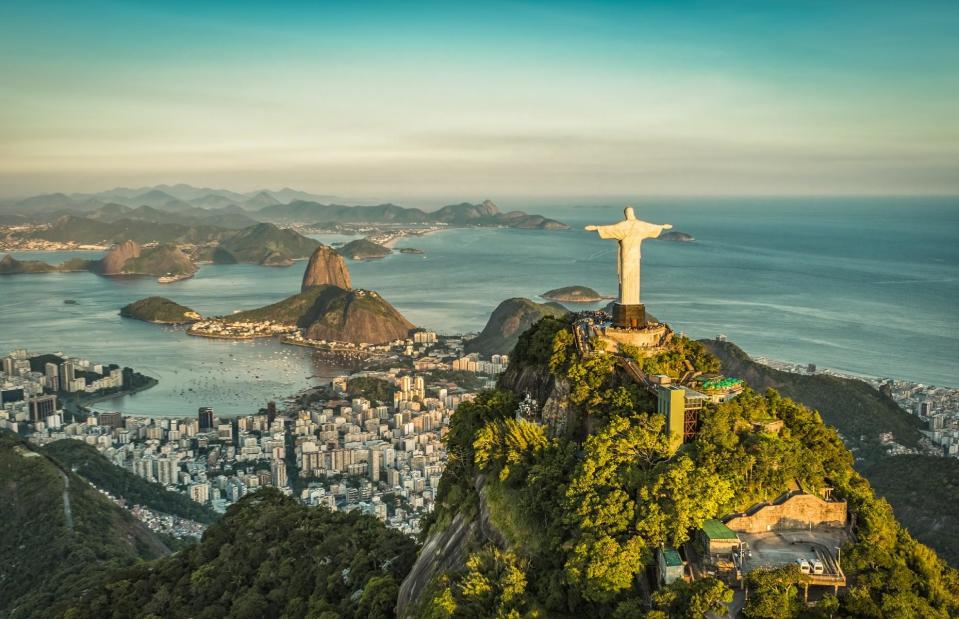
marchello74/Shutterstock
In the second quarter of 2021, Brazil added a considerable 53.75 tonnes of gold to its reserves, almost doubling its hoard and pushing Mexico out of the top 30 countries. The purchase was reportedly Banco Central do Brasil’s largest gold acquisition since at least December 2000.
The move was unsurprising, as the World Gold Council anticipated that central banks would be net buyers of gold following the precious metal’s stellar performance during the COVID-19 pandemic. In the third quarter of 2021, Brazil followed up this purchase by buying a further 8.54 tonnes and its stockpile has remained consistent ever since.
29. Iraq: 138.44 tonnes
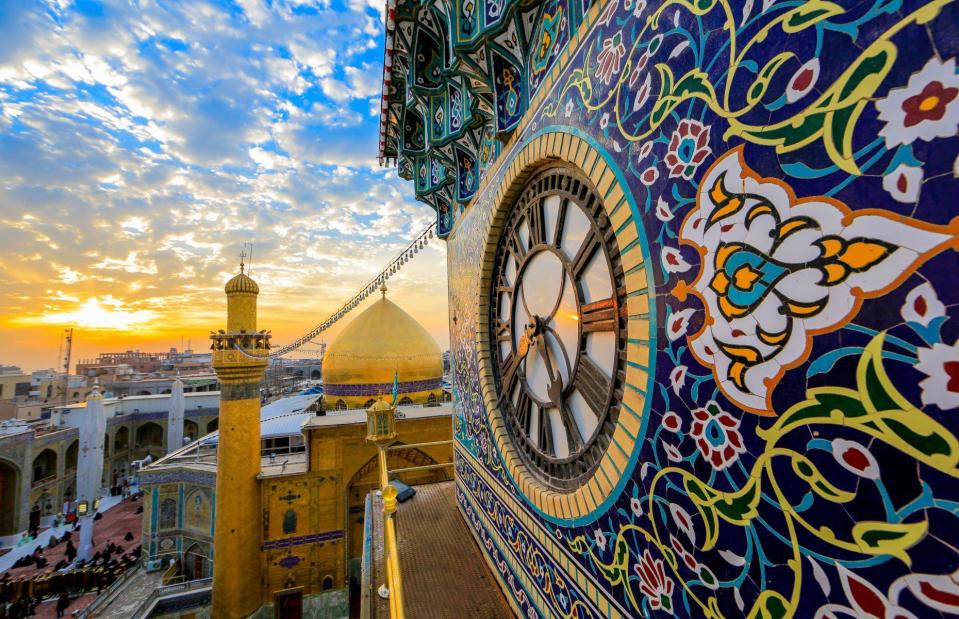
CameraAction/Shutterstock
A relative newcomer to the top 30, Iraq increased its gold reserves by a substantial 33.97 tonnes in the first quarter of 2022, the largest addition of any country in the world for that time period. The Middle Eastern nation has reportedly been busy expanding its reserves of both gold and cash; the Central Bank of Iraq expected the latter to increase from $80 billion (£69.2bn) to $90 billion (£77.8bn) by the end of 2022, a target it achieved.
According to the bank's Deputy Governor Ammar Khalaf, this has been a response to rising oil prices as a result of Russia's war with Ukraine. The country added more than five tonnes to its stockpile in the final quarter of 2023, and Iraq's gold reserves currently sit at 138.44 tonnes.
28. Libya: 146.65 tonnes
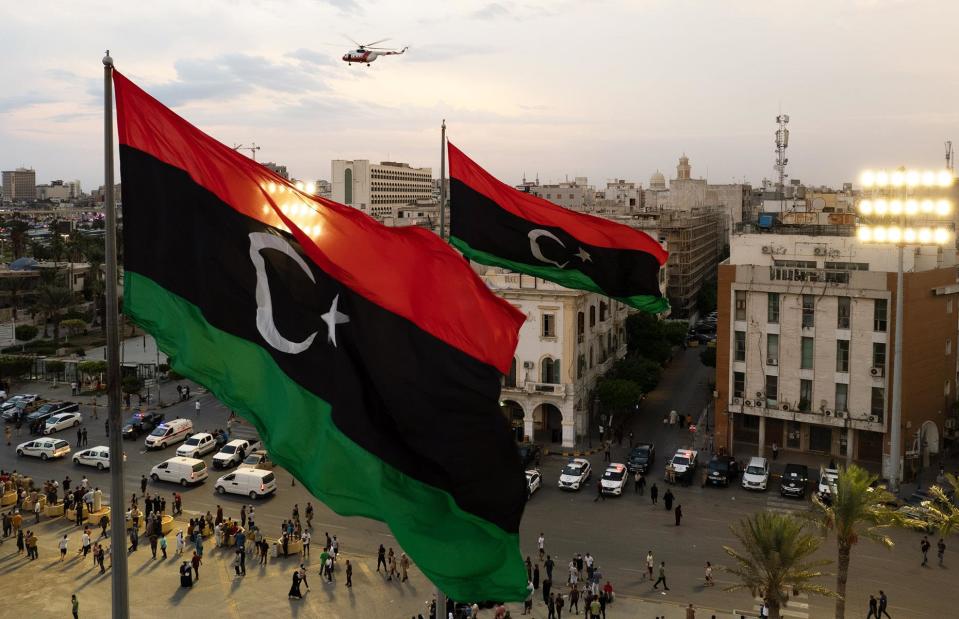
Hussein Eddeb/Shutterstock
Questions have surrounded Libya's gold reserves, with reports claiming as much as 27 tonnes had disappeared from the country since the overthrow of Muammar Gaddafi in 2011. As recently as the first quarter of 2023, the World Gold Council had pegged Libya's gold holding at 116.64 tonnes.
The Central Bank of Libya (CBL) denied the claims and, following an audit last year, it confirmed that the same reserves had been held without change since August 2011. Libya is now recognised as holding gold reserves of 146.65 tonnes.
27. Venezuela: 161.22 tonnes

Douglas Olivares/Shutterstock
Venezuela was among the top 20 gold owners until a few years ago but sold off about $1.7 billion (£1.2 billion) worth of gold in early 2016 to reduce its vast debts and fend off economic crisis. In September 2019, it was reported that the country's reserves had fallen to a 75-year low. However, Venezuela's attempts to sell more of its gold reserves have hit a wall.
The Bank of England, which holds around a third of its gold reserves, has refused Venezuela access amid US sanctions against the South American country. In retaliation, Venezuela launched a lawsuit against the bank in May 2020 following its decision not to accept Nicolas Maduro as Venezuela's leader. In July last year, the British government ruled the Venezuelan state wouldn't be given access to the reserves as long as Maduro controlled it. For now, the nation's gold stocks remain the same at 161.22 tonnes after dropping by around 6 tonnes in the first six months of 2022.
26. Philippines: 164.77 tonnes

Tetyana Dotsenko/Shutterstock
The Philippines is one of Asia's largest gold producers. Although mining is big business here, it's thought much of the country's gold remains untapped. Desperately poor locals hoping to get lucky and literally strike gold even undertake dangerous dives in mud-filled swamp mines in search of the precious metal.
However, the Philippines already has large reserves of gold, with 164.77 tonnes currently under its ownership. That's a notable increase from 159.84 tonnes in the first quarter of 2023, meaning it's now overtaken Venezuela.
25. Algeria: 173.56 tonnes
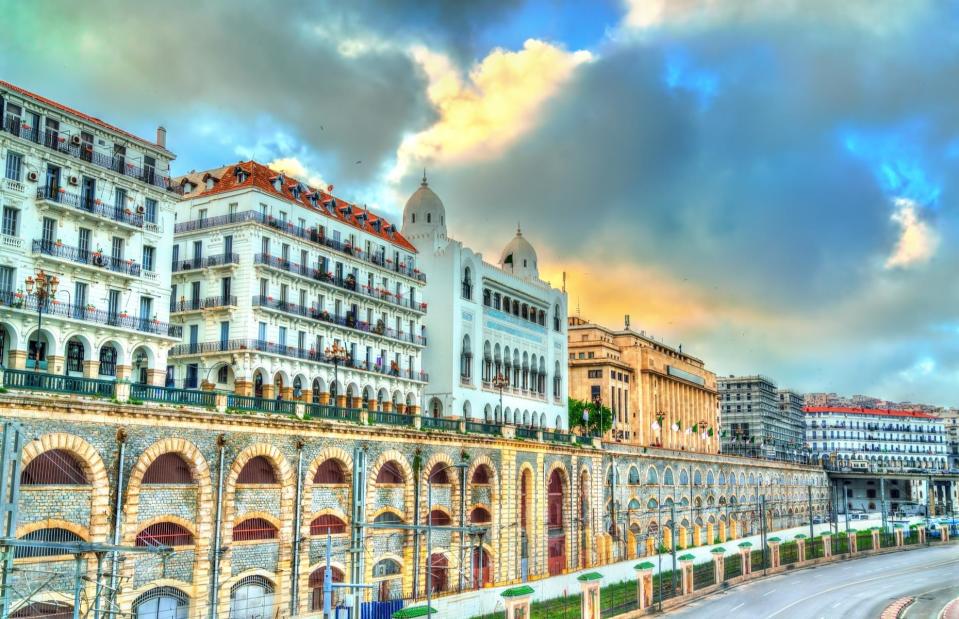
Leonid Andronov/Shutterstock
The North African country of Algeria has over 8 tonnes more gold than the Philippines, with reserves currently standing at 173.56 tonnes. It also has a strong gold mining tradition, with gold thought to have been mined in the country on a small scale since pre-Roman times.
The government has recently taken steps to encourage commercial gold mining on a large scale as it's thought there's a great deal of wealth hidden beneath its soil.
24. Belgium: 227.40 tonnes
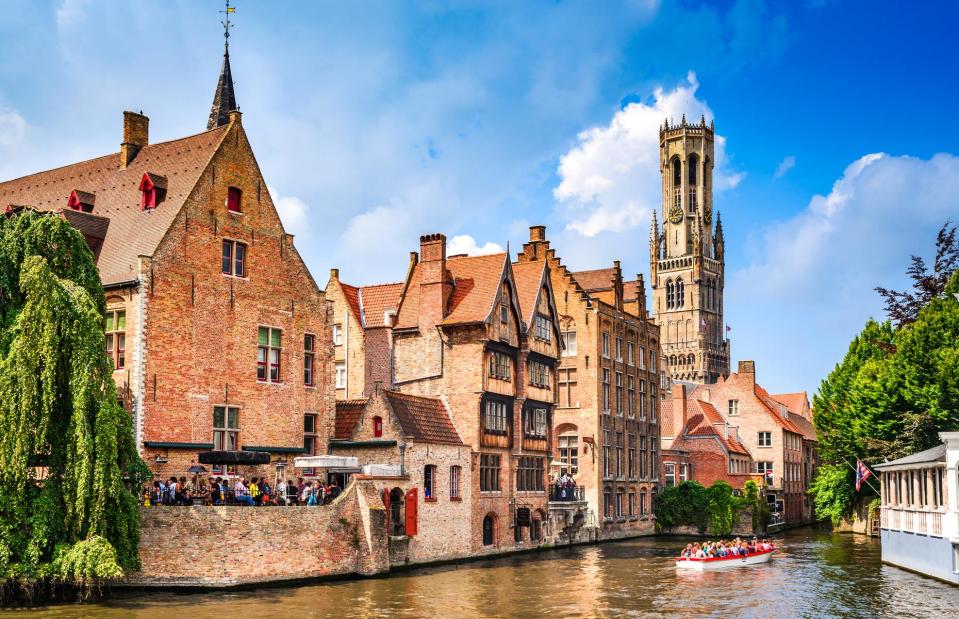
cge2010/Shutterstock
Belgium is holding onto 227.4 tonnes of gold. Most of this is thought to be held abroad, with some in the Bank of England and some in the Bank of Canada. There was talk of the country repatriating its stocks, but it's thought the transport and security costs involved in the move were prohibitive and Belgium was unsure where to store its gold if it were returned to home soil.
23. Singapore: 230.02 tonnes

Sean Pavone/Shutterstock
Those looking for a secure place to store their gold often settle on Singapore. The country hasn't been tarnished by any major corruption scandals, crime is low and so are taxes, and the cost of gold storage is incredibly competitive. Singapore itself also has a substantial reserve of gold, 230.02 tonnes of the stuff to be precise, a significant increase of over 75 tonnes since June 2021.
22. Thailand: 244.16 tonnes

SOUTHERNTraveler/Shutterstock
Thailand added more than 90 tonnes of gold to its stockpile in the second quarter of 2021, bringing its total reserves to 244.16 tonnes and shifting the country five places up the gold ownership rankings, where it remains today. Thailand mines its own gold, and the Thai people place a high value on the precious metal. In fact, gold jewellery is arguably more popular in southeast Asia as a whole than it is elsewhere in the world.
21. Austria: 279.99 tonnes
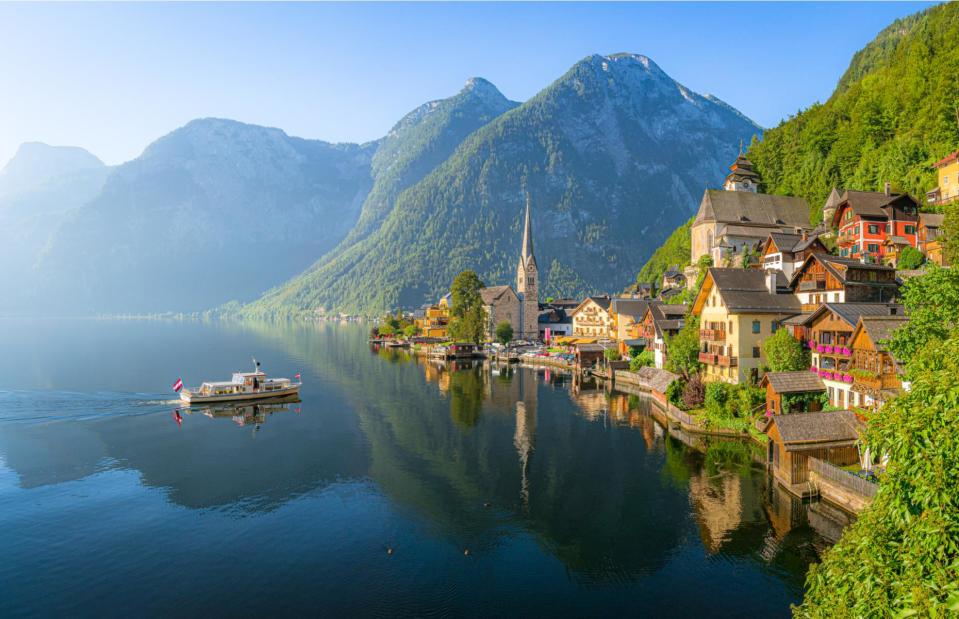
Nyokki/Shutterstock
With just a fraction under 280 tonnes of gold, Austria is in 21st place. In the past, much of the European nation's stock has been held by the Bank of England, but in 2015 it was announced that the Austrian National Bank planned to repatriate much of this back to Vienna.
20. Spain: 281.58 tonnes
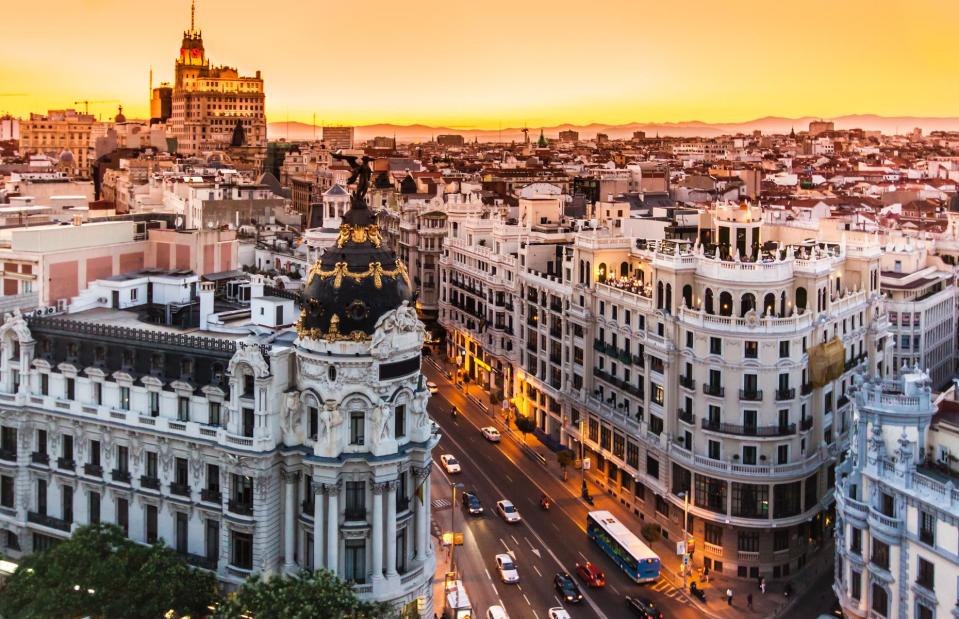
Matej Kastelic/Shutterstock
Spain only holds just over a tonne more gold than Austria. Gold mining has been going on in Spain since pre-Christian times and it was the Romans who turned it into a flourishing industry.
There's now a renewed interest in Spanish gold, with a lot of prospector activity being carried out in the hope of being able to strike it lucky. That's unlikely to impact heavily on the country's gold reserves, however, which have remained stable since the start of 2022.
19. Lebanon: 286.83 tonnes
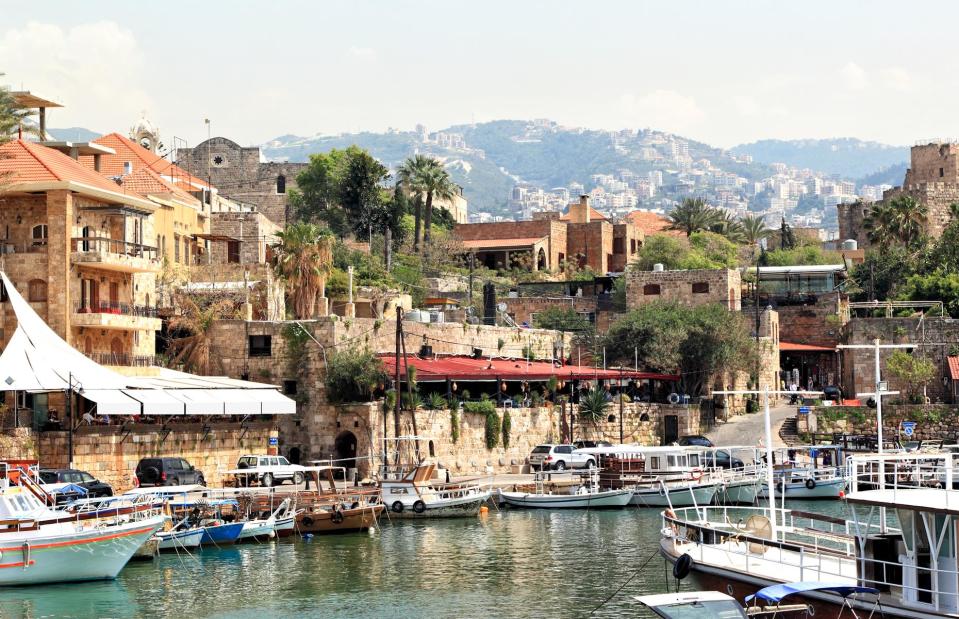
diak/Shutterstock
It may not be the most stable country in the world, but this small nation is rich in gold. Lebanon is currently holding onto 286.83 tonnes of gold, giving it the third-largest stockpile in the Middle East. Although Lebanon has a mining industry, gold is not one of its abundant natural resources, and it principally mines limestone, iron ore, and salt.
18. Kazakhstan: 294.24 tonnes
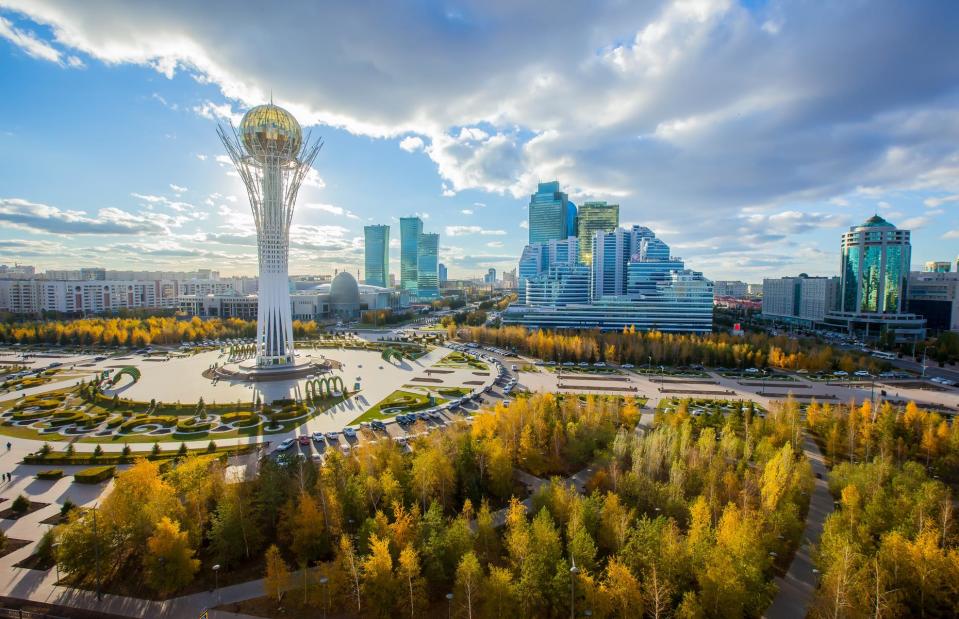
Jane Peimer/Shutterstock
Kazakhstan's National Bank increased its gold reserves by more than 100 tonnes in the past few years, in a bid to reduce the country's reliance on the US dollar and neutralise currency risks. And in the months before the COVID-19 pandemic hit, it bought up more gold. Even at the beginning of 2021, as the country was still feeling the effects of the crisis, Kazakhstan increased its gold ownership.
The land-locked country, which is currently working to develop its gold mining industry through foreign investors and low government regulation, added an impressive 11.27 tonnes of gold to its stocks in the third quarter of 2021, bringing its total reserves to 402.38 tonnes. But in the first quarter of 2022, it changed course, rapidly selling off 34.26 tonnes to bring its reserves back down to 368.12 tonnes.
Despite later buying back 15.79 tonnes in the first half of 2022, Kazakhstan went on to offload twice as much in the second half of the year. After selling another 19.64 tonnes, the largest decrease of any country in the first quarter of 2023, Kazakhstan had 332.03 tonnes of gold. That's since dropped again to 294.24 tonnes according to the latest data.
17. United Kingdom: 310.29 tonnes

David Ionut/Shutterstock
Many countries choose to store their gold in the heavily fortified Bank of England vault, the second largest in the world after the vault at the New York Federal Reserve. The UK has its fair share of gold reserves too, with 310.29 tonnes of the precious metal currently held in its name. Despite there being no active gold mines in the UK, it's long been seen as the centre of the wholesale gold market and a major importer and exporter of the metal.
However, this is a much-reduced reserve after the nation's Chancellor at the time (and later Prime Minister) Gordon Brown made the controversial decision to sell more than half of the UK's gold reserves – 401 tonnes – for $3.5 billion (£2.2bn) in 1999. The price of gold skyrocketed in the years that followed and many believe it was the wrong time to sell.
16. Saudi Arabia: 323.07 tonnes
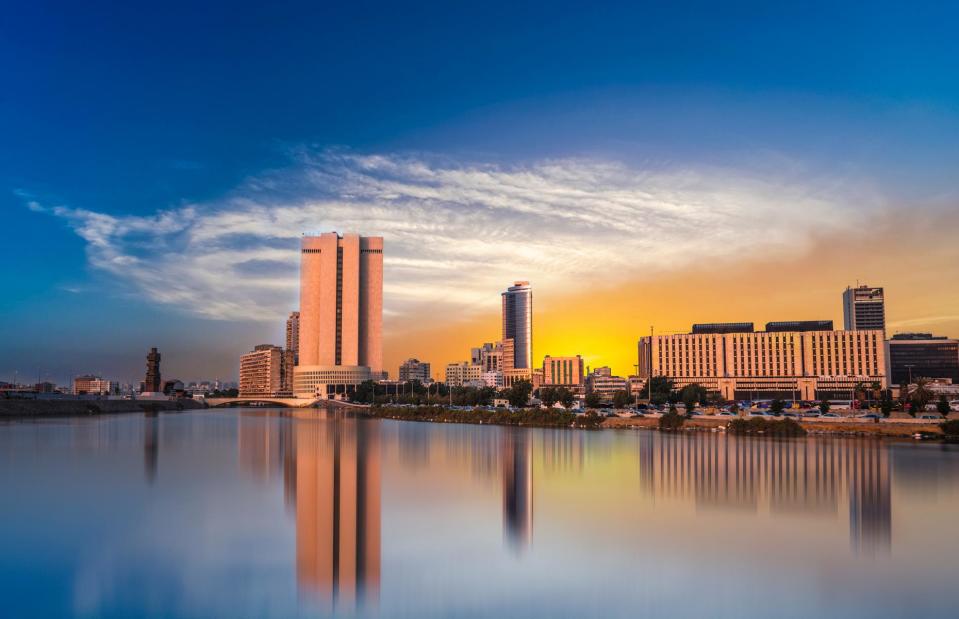
Osama Ahmed Mansour/Shutterstock
The oil-rich country of Saudi Arabia has the second-highest gold reserves in the Middle East, with 323.07 tonnes of the precious metal.
As part of plans to diversify its economic base and rely less heavily on oil, Saudi Arabia is also committed to boosting its gold mining industry. Although overshadowed by oil, this is not a new endeavour, as archaeological studies show that gold was mined in the country up to 5,000 years ago.
15. Poland: 358.69 tonnes
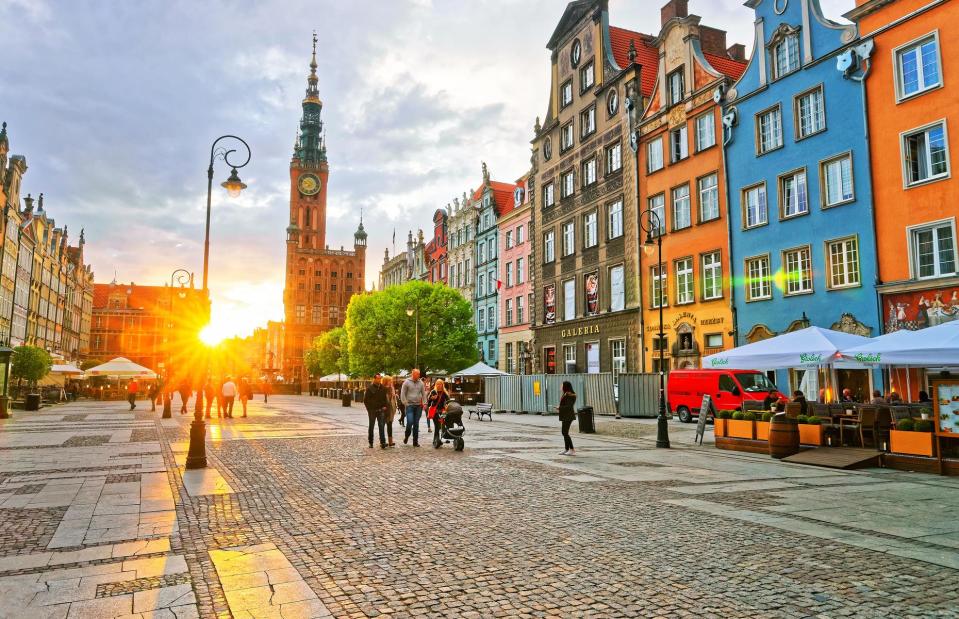
Roman Babakin/Shutterstock
In November 2019, Bloomberg reported that Poland had transported $5.2 billion (£4bn) worth of Polish-owned gold bars from the Bank of England, where they had been stored since World War II to hide them from the Nazis, to secret vaults back in Poland. Then, in 2021, Poland expanded its gold reserves in a bid to protect domestic currency values against the rising dollar, bringing them to their highest level in 35 years at 231.77 tonnes.
Poland’s central bank wanted to buy another 100 tonnes of gold – around $5.5 billion (£3.6bn) worth – over the coming year, Reuters reported in March 2021, following a trend of Eastern European countries looking to reduce their reliance on assets such as the US dollar. In line with this plan, the Polish government increased its stocks by a massive 56.63 tonnes in the third quarter of 2023, the second highest increase of any country. This was followed up by an increase of 25 tonnes in Q4, bringing its current total to 358.69 tonnes.
13. Uzbekistan: 371.37 tonnes
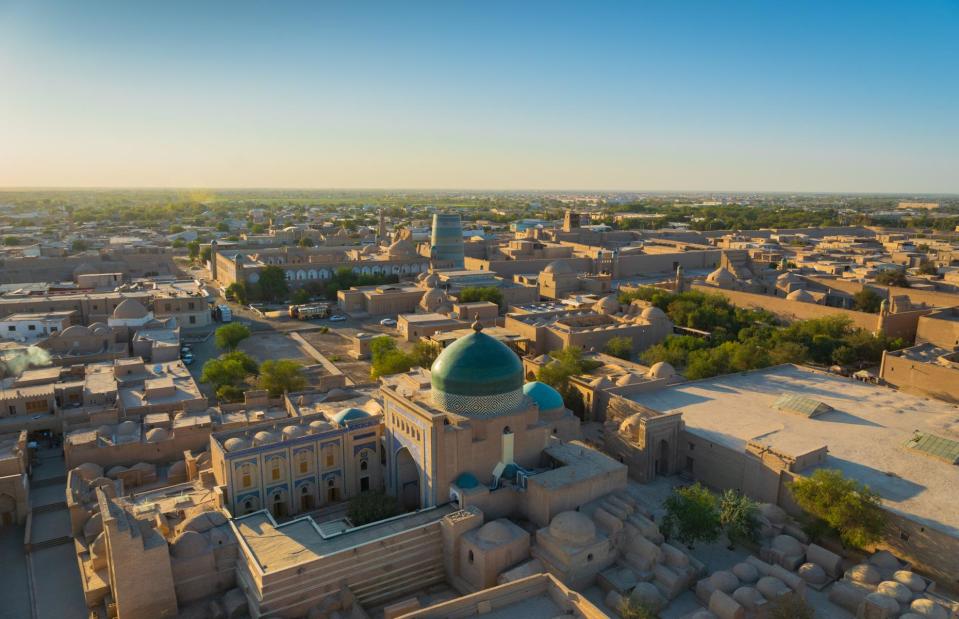
Uskarp/Shutterstock
A mineral-rich country, Uzbekistan has a wealth of resources including oil, natural gas, gold, silver and uranium. As well as being a top producer of the precious metal, the country reportedly planned to continue increasing its gold reserves to 430 tonnes by 2024.
However, in July 2020 the country became the world's largest seller of gold as it pinned its hopes of economic recovery from the COVID-19 pandemic on it. In fact, in the first eight months of 2020, Uzbekistan sold $5.8 billion (£4bn) of gold, nearly a billion dollars more than the $4.9 billion (£3.5bn) it sold throughout the whole of 2019. The country then changed tack at the beginning of 2021 and was one of four nations leading a gold purchasing drive that February, despite the continuing trend for central banks to sell up during the COVID-19 crisis.
Uzbekistan added over 5 tonnes to its reserves in the third quarter of 2023, but then proceeded to sell 12.44 tonnes of gold in the following months. It currently owns 371.37 tonnes and has switched places with Portugal in our rankings as a result.
14. Portugal: 382.63 tonnes
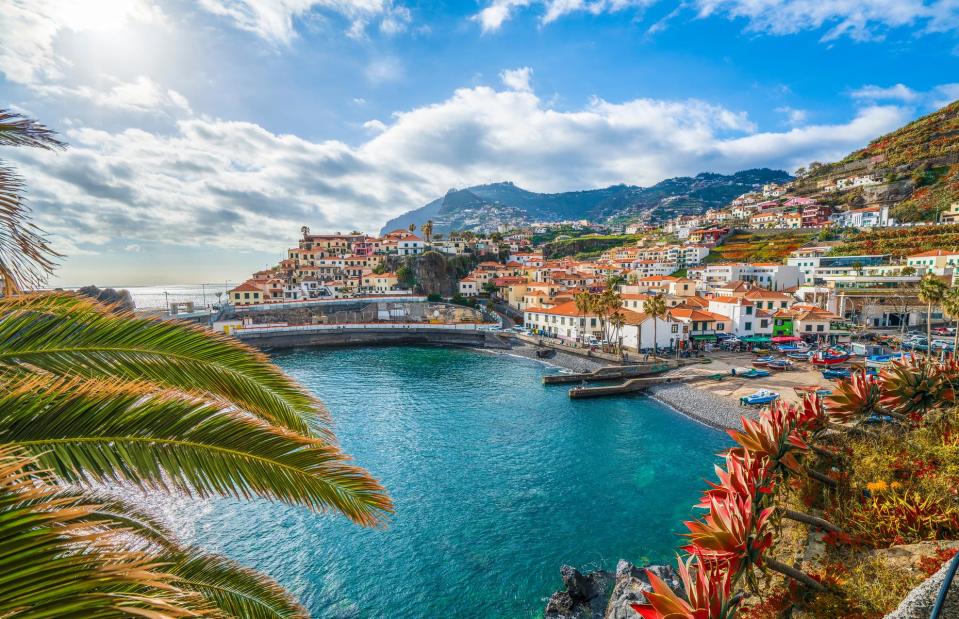
Balate Dorin/Shutterstock
Portugal currently has 382.63 tonnes of gold, a small increase of 0.06 tonnes. However, the country has battled economic instability and there have been calls for it to sell off some of its gold reserves to reduce its national debt, which currently stands at over $300 billion (£236bn). Regulations make this easier said than done though. For now, Portugal is holding onto its precious asset.
12. Taiwan: 423.63 tonnes

weniliou/Shutterstock
Despite being a small island off the coast of China, Taiwan is sitting on 423.63 tonnes of gold. In 2019 it dipped into its gold reserves to produce coins to commemorate the upcoming inauguration of President Tsai Ing-wen as the chairperson of the Democratic Progressive Party. The central bank made a total of 10,000 gold coins and 50,000 silver coins to mark the occasion, which took place in May 2020.
11. Türkiye: 540.19 tonnes
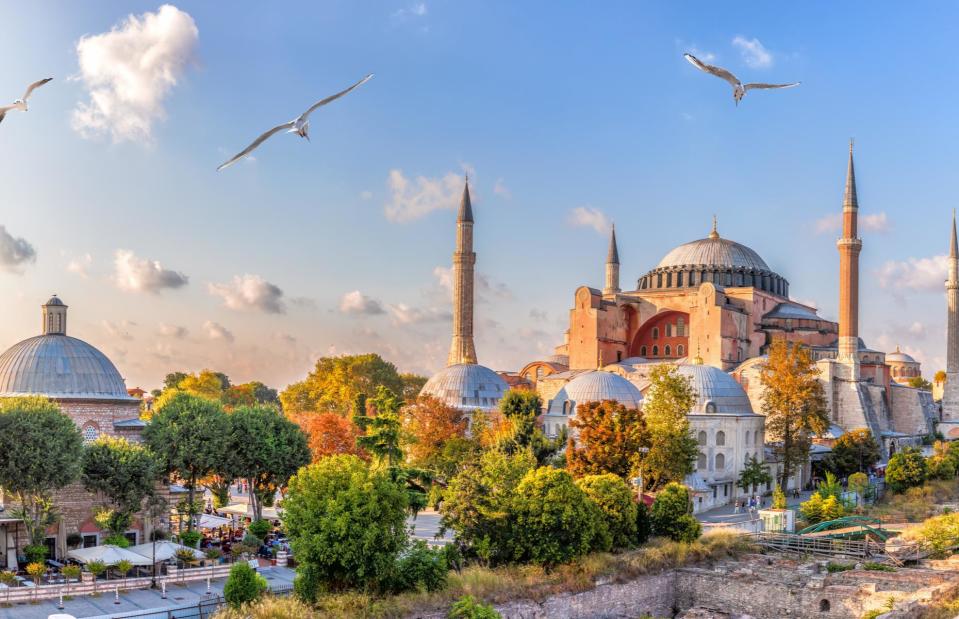
AlexAnton/Shutterstock
Türkiye has seen many changes to its gold reserves over the last six years, falling by more than 200 tonnes between 2017 and 2019. Türkiye then went on a buying spree due to concerns over its relationship with the US and a year of crisis for the nation's currency, the lira, and ended up with 716.3 tonnes of gold in the last quarter of 2020.
It then led the global drive to sell off gold during the pandemic. By the end of 2021, the country had 392.80 tonnes of gold left, less than 55% of its total reserves at the end of 2020. But this number has since crept up, with Türkiye adding 100.44 tonnes to its stocks in the last six months of 2023.
10. Netherlands: 612.45 tonnes
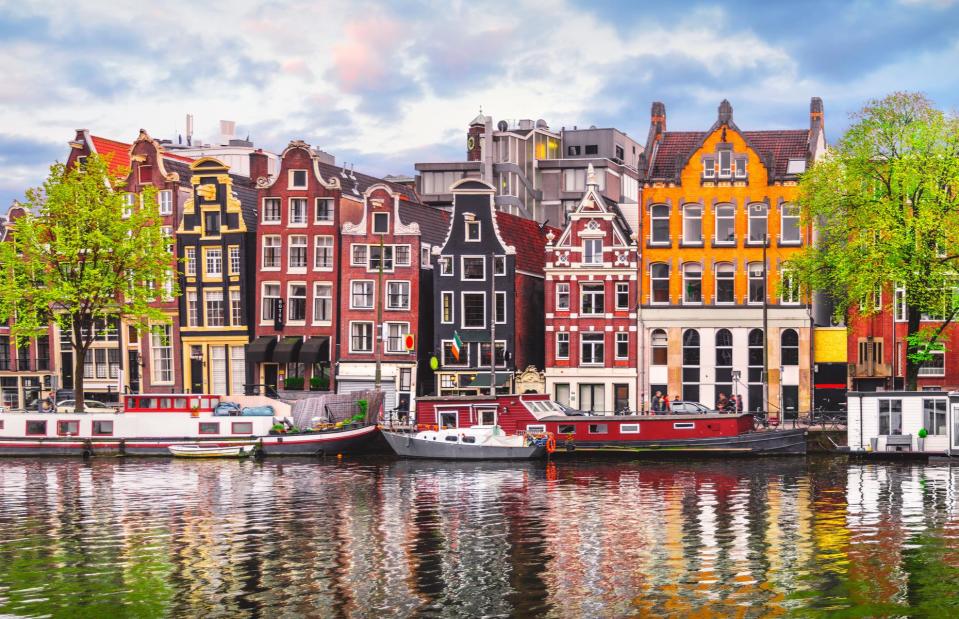
Yasonya/Shutterstock
The Netherlands takes the number 10 spot in the gold reserves rankings, with 612.45 tonnes of gold in its stocks. In October 2019, it was reported that the Dutch central bank would be transporting 14,000 gold bars, weighing a total of 175 tonnes, to a temporary location in Haarlem, before permanently moving them to the DNB Cash Centre in Zeist.
A similar convoy mission took place in October 2020 when armed guards, helicopters, and forklifts came together to move 200 tonnes of gold from Amsterdam’s Dutch central bank to the same vault in Haarlem. The meticulously guarded shipment contained gold worth around €10 billion ($12bn/£8.7bn), along with around €4.5 billion ($5.4bn/£4bn) in bills.
9. India: 803.58 tonnes
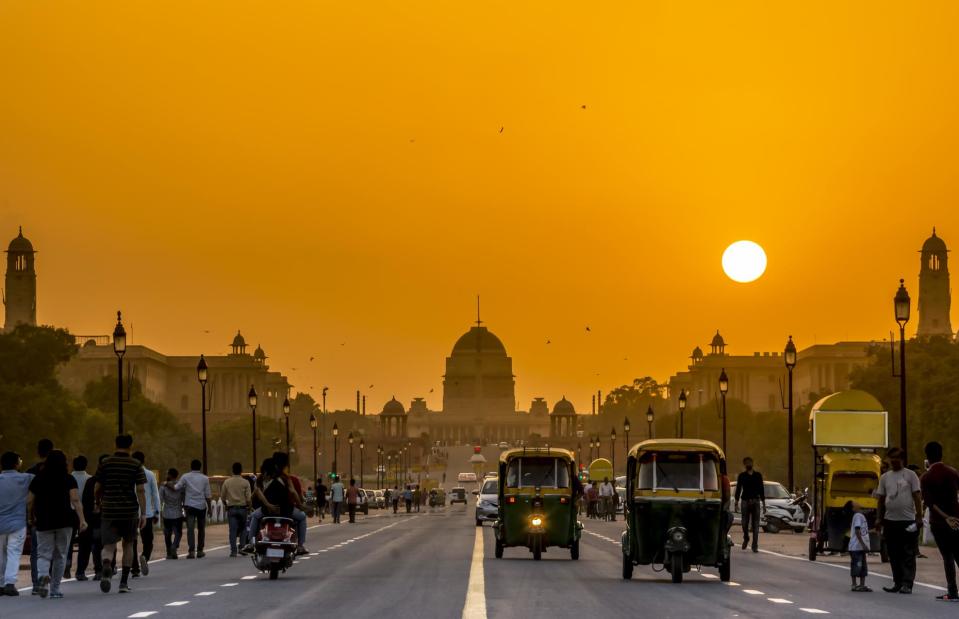
Kriangkrai Thitimakorn/Shutterstock
There's a jump of over 190 tonnes from the Netherlands' stock of gold to that of India, a hoard that's increased by over 157 tonnes in the past few years. The country also has high household reserves, particularly in the form of gold jewellery.
Although India does have a small gold mining industry, it can't support the national demand and most of its yellow metal is bought in from abroad. India is another country that bought gold at the beginning of 2021 as most nations continued to sell amid the COVID-19 crisis. Its ever-expanding reserve of gold currently weighs in at 803.58 tonnes, an increase of more than 80 tonnes over the last year or so.
8. Japan: 845.97 tonnes
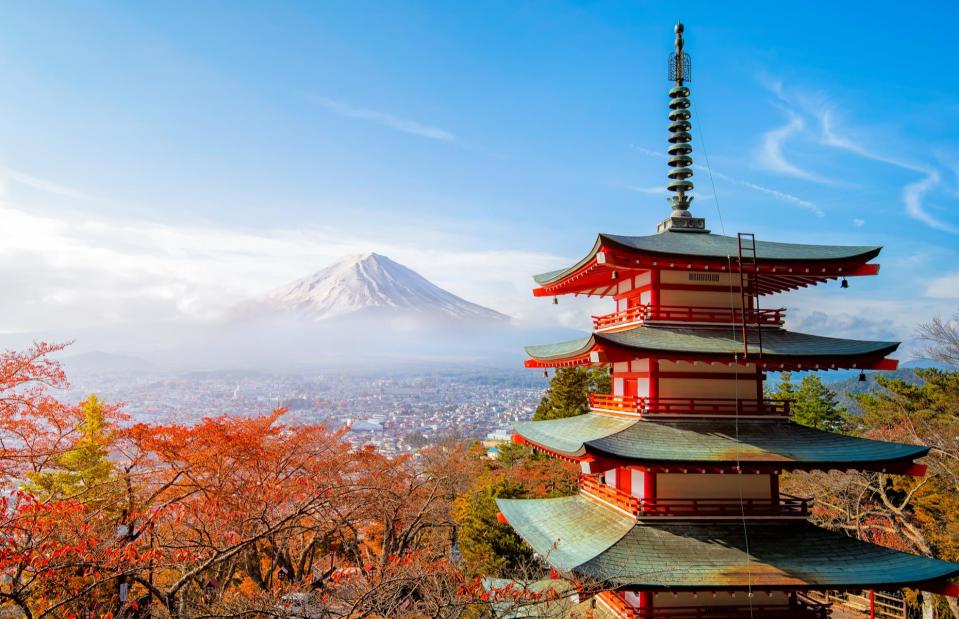
Phattana Stock/Shutterstock
Japan currently holds 845.97 tonnes of gold. In December 2020, 80 tonnes of gold used for minting coins were sold to a different arm of the government as the country explored ways to fund its enormous COVID-19 stimulus package.
The country also has its own veins of gold running through its land, which have been mined on a small scale for centuries. Recent exploratory gold searches have proved a success and Japan is now looking to exploit those reserves further.
7. Switzerland: 1,040 tonnes
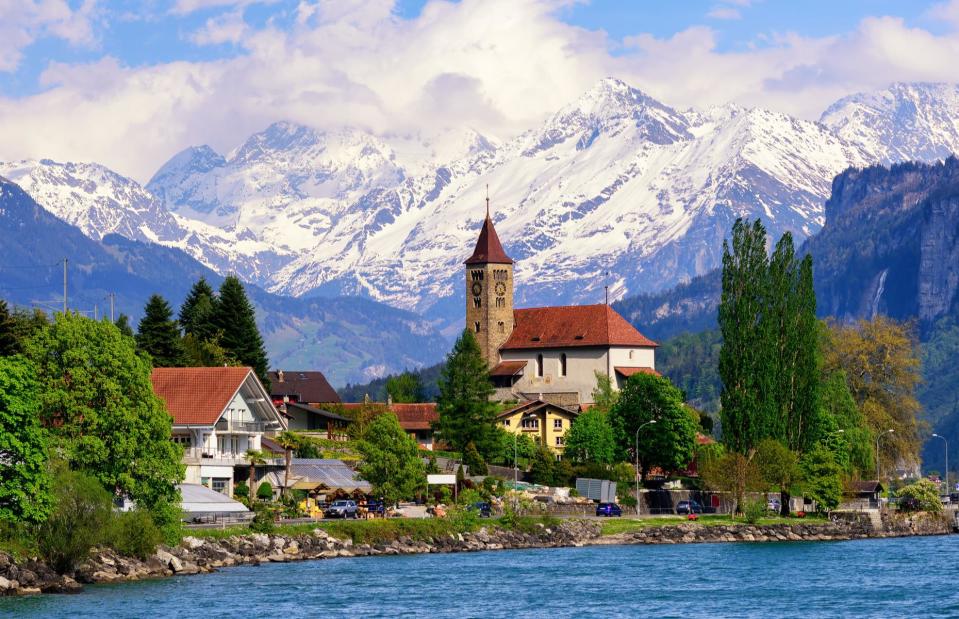
Boris Stroujko/Shutterstock
The gold stocks move into four figures now with Switzerland holding 1,040 tonnes. The majority of this gold is held on home soil, but some of it is stored at the Bank of England and the Bank of Canada.
In 2014 there was a referendum to decide whether the Swiss National Bank (SNB) should expand its gold reserves from 7% to 20%. The status quo prevailed, with 78% of voters opposed to the SNB increasing its share.
6. China: 2,235.39 tonnes
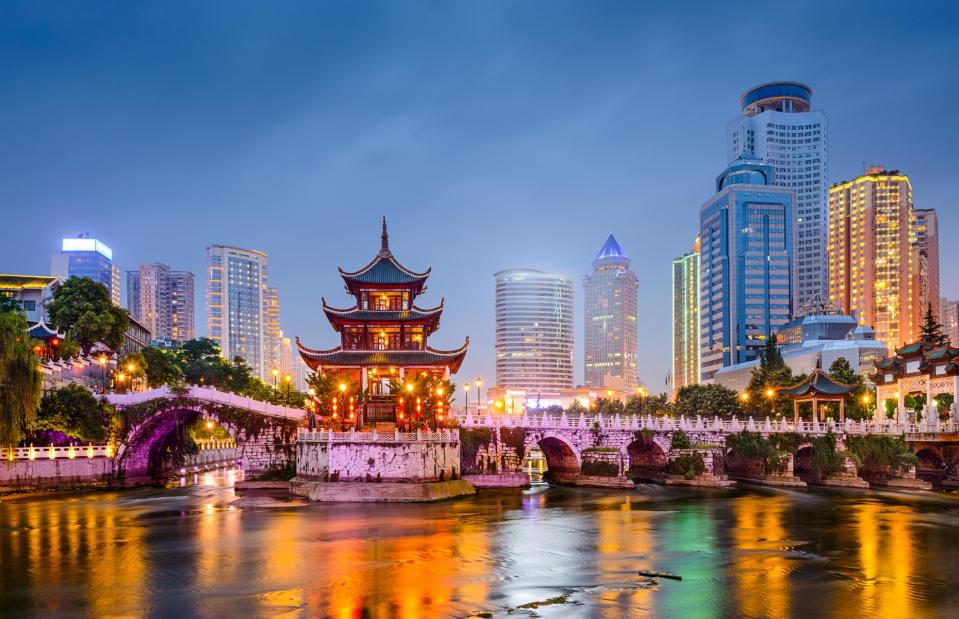
Sean Pavone/Shutterstock
China has 2,235.39 tonnes of gold in its reserves, a big increase of around 200 tonnes since the last quarter of 2022. It's also the world's biggest gold producer, accounting for 12% of global mine production according to investment manager US Global Investors. The local demand for gold has been boosted by the burgeoning wealth of its growing middle-class – and it's likely the numbers will be higher in GoldHub's next rankings, as China has reportedly been stepping up its gold imports from Russia, adding an additional 121.93 tonnes to its stocks in the last six months of 2023. That's the largest increase of any country in the world.
Although the quantities are still relatively small, China's receipt of 2.16 tonnes of Russian gold last October represented a seven-year high, according to RT. The majority of the metal was reportedly used either in the electronics industry or to make consumer goods to celebrate Chinese New Year.
5. Russia: 2,332.74 tonnes
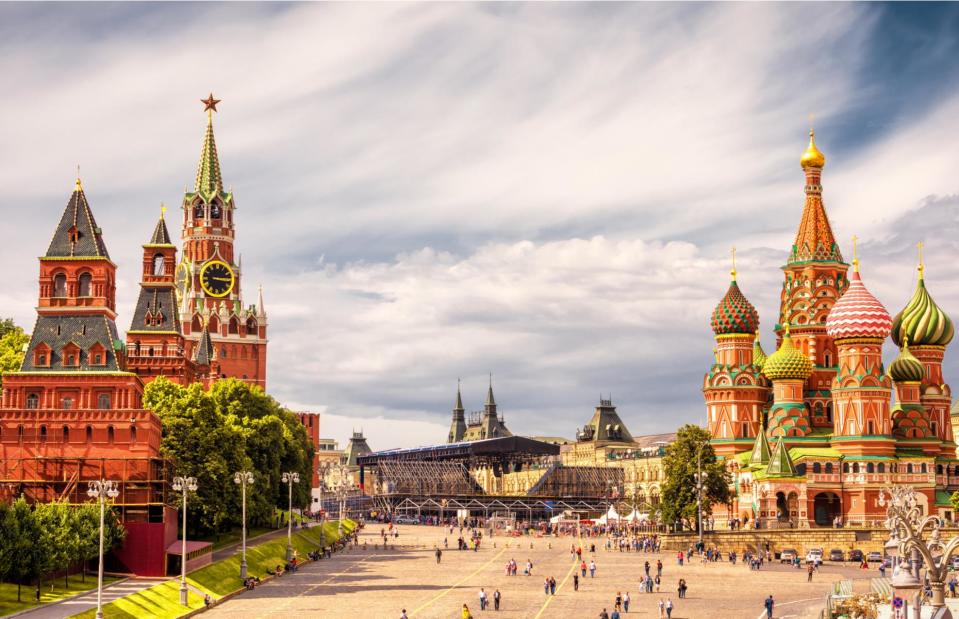
Viacheslav Lopatin/Shutterstock
Russia can’t get enough of the precious metal and has spent around $40 billion (£30bn) over the past five years to boost its gold reserves, allowing it to overtake China in the rankings and reduce its reliance on the US dollar. It also has a billion-dollar gold mining industry, which means it doesn’t need to rely on imports either.
However, Russia's invasion of Ukraine – and subsequent condemnation by much of the world – has rendered its impressive gold stocks almost useless. Sanctions have pushed the Russian Federation out of the global gold trade, with London banning all bars from Russian refineries and the US Senate prohibiting citizens from making any transactions that involve Russian gold.
As the ruble crashes in value, some analysts have suggested the country could return to a gold standard system to stabilise its economy. But whether this will be enough to prevent economic collapse in Russia remains to be seen. The country has increased its gold reserves by more than 30 tonnes since the last quarter of 2022 and is clearly still stockpiling the precious metal.
4. France: 2,436.97 tonnes
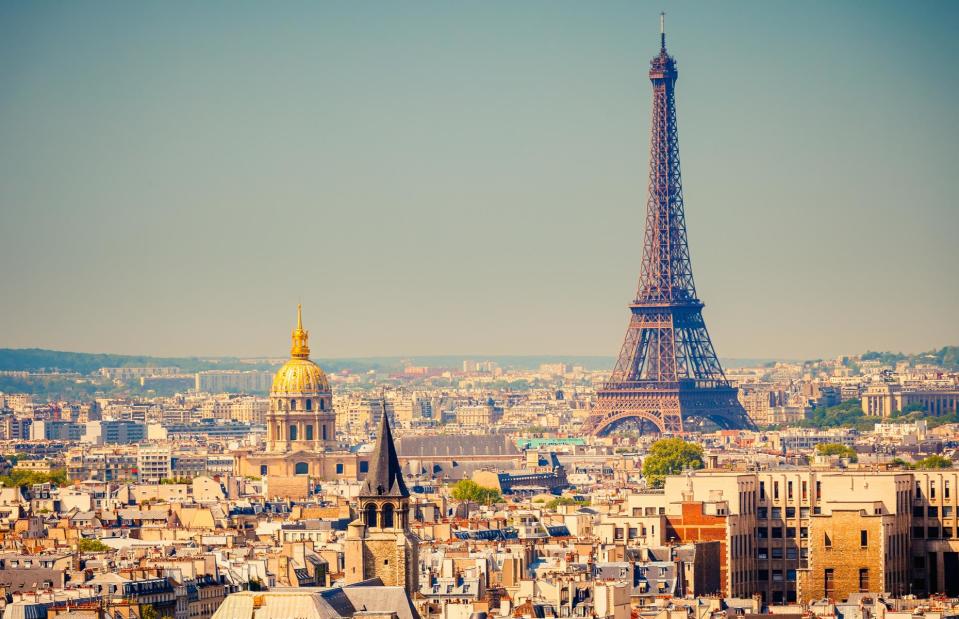
S.Borisov/Shutterstock
France has stockpiled 2,436.97 tonnes of gold, much of which was reportedly acquired during the 1950s and 1960s. It's increased its stocks slowly but surely over the last few years.
Although some of its reserves are held abroad, most of this gold is said to be held in vaults under the Banque de France in Paris. A few hundred tonnes of French gold were sold off in the early part of this century, but stocks have remained relatively stable since about 2009.
3. Italy: 2,451.84 tonnes

Yasonya/Shutterstock
Italy holds slightly more gold than France. Unlike most countries, where the gold reserves are owned by the state and managed by their central banks, Italy’s gold is actually owned by the Banca d’Italia and held in vaults in Rome as well as at the Swiss National Bank, the Federal Reserve Bank in New York, and the Bank of England.
The Italian government made headlines in February 2019 when it said that it would "not sell a gram" of the gold reserves to fill budget holes. True to its word, the country's stocks have remained the same.
2. Germany: 3,352.65 tonnes

Feel good studio/Shutterstock
Germany is the second-largest hoarder of gold in the world with 3,352.65 tonnes of the stuff, a small decrease from its 3,359.09 tonnes at the end of 2021. Concern over its gold falling under Soviet control during the Cold War led to the stockpile being spread around the world.
It was thought to be divided between the Federal Reserve Bank in New York, the Bank of England, and the Banque de France. Between 2013 and 2017 at least half of it was brought back home to Frankfurt.
1. USA: 8,133.46 tonnes

Sean Pavone/Shutterstock
Unsurprisingly, the USA is the country with the most gold in the world, boasting a staggering 8,133.46 tonnes of gold bullion. That's more gold than Germany, Italy and Russia's stockpiles combined!
The majority of this gold is thought to be held in depositories across America, such as the United States Bullion Depository, better known around the globe as Fort Knox. Total American reserves are worth over $489 billion (£386bn).
Now discover the ordinary people who stumbled upon extraordinary amounts of gold

 Yahoo Finance
Yahoo Finance 